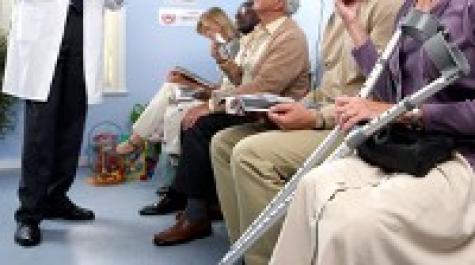While people around the country continue to focus on hospital waiting lists, the “great injustice of health inequity continues to grow” across the country according to the CEO of Catholic Health Australia, Martin Laverty.
Mr Laverty said that a report on healthcare outcomes released by the Council of Australian Governments last Friday wasn’t just concerned with waiting lists.
“It is important that people receive health care in a timely fashion, but it would be great if people around the country were as interested in the reality that people living in different parts of Australia, or from different cultural or socioeconomic backgrounds, are seeing their health suffer. In fact, it’s those most disadvantaged Australians who are further impacted as they are left to languish on the longest waiting lists.
Mr Laverty said a report by the Senate that made recommendations for improving the social determinants of health was issued almost three months ago.
“It is sitting on politicians’ desks gathering dust, rather than being followed.”
Mr Laverty said COAG Reform Council chair, John Brumby, summed up the current disparity facing the country and acknowledged that Australia continues to experience health inequalities based on who they are, how much they earn and where they live.
In a letter to the Prime Minister, Mr Brumby wrote: “We do not see consistently strong performance across all states and territories in key areas of hospital care and continue to find that there are health inequalities for Indigenous Australians."
Mr Laverty said that he hoped this latest report would help “flip the switch in the minds of our politicians”.
“They can’t ignore the overwhelming evidence forever,” he said.
The key findings in the COAG report were:
- smoking rates increased with socioeconomic disadvantage inside and outside major cities;
- whether an adult is likely to engage in behaviours that affect health outcomes varies depending on where they live;
- two out of three adults outside a major city were overweight or obese across all areas of socioeconomic disadvantage. In major cities, around two-thirds of adults in the most disadvantaged areas were overweight or obese;
- those in the least disadvantaged areas were more likely to drink alcohol at levels that put them at risk of long-term harm;
- people living in the most socioeconomically disadvantaged areas were more than twice as likely to experience very high levels of psychological distress;
- the rate of potentially preventable hospitalisations for chronic conditions is highest for the most disadvantaged areas.
“This is hardly the first report to present these stark realities, and we fear it won’t be the last. It certainly won’t be the last if governments – particularly the Commonwealth – don’t take this issue seriously,” Mr Laverty said.
“The social determinants agenda should be one that transcends politics, with something in it that should appeal to all of the major parties. We'll be asking hard questions of Labor, the Coalitions and the Greens, seeking their solution to unacceptable levels of health inequity.”
* * *
Catholic Health Australia is the largest non-government provider of health, community and aged care services in Australia. A copy of the COAG Reform Council report is here.



















__small.png)










